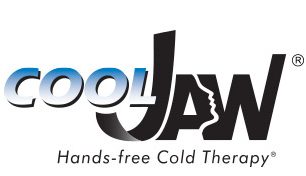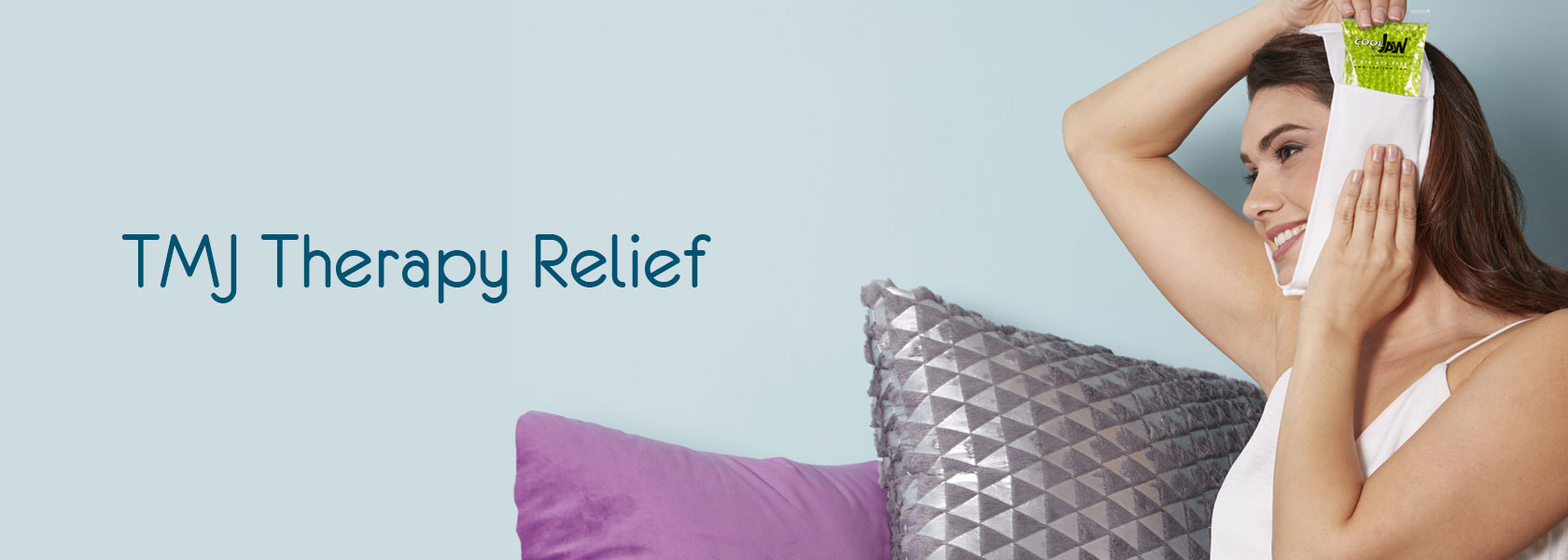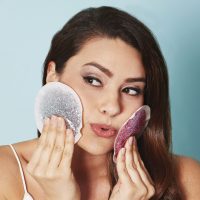Applying heat or cold gel packs are the most basic treatments for TMJ; and a great place to start:
In a survey conducted by the TMJ Association and the Medical College of Wisconsin (MCW) targeting Temporomandibluar Joint Disorders (TMD), hot and cold compresses to the jaw were found to be the number one most effective and most frequently used pain therapy or treatment.
Below are our top picks for TMJ Relief
Choose our TMJ Relief Set for easy, convenient ordering and FREE SHIPPING.
Are You Suffering From Any of the Following Symptoms and Need TMJ Relief?
- Difficulty Opening and Closing Your Mouth
- Pain In Healthy Teeth
- Sinus Pain
- Sore Jaw In The Morning
- Pressure Behind the Ears
- Hearing Loss
- Teeth Grinding
- Locked Jaw
- Teeth Clenching
- Clicking Sounds When Opening or Closing Your Mouth
- Unexplained Pressure Behind Your Eyes
- Unexplained Headaches
These may be symptoms of Temporomandibular Joint Syndrome (TMJ)
Symptoms of TMJ or TMDs (“temporomandibular disorders” is a collective term embracing a number of clinical problems that involve the masticatory musculature, the temporomandibular joint and associated structures, or both.) occur in approximately 6 to 12 percent of the adult population or approximately ten million individuals in the United States.
Unlike other joints in the body, the TMJ is different because it is composed of fibrocartilage. The TMJ is able to withstand greater sheer force than any other joint and moves and functions in a very complex way. When things go wrong, the consequences are challenging. It is estimated that 17,800,000 workdays are lost each year for every 100,000,000 full-time working adults in the United States due to disabling TMDs.
TMDs are nine times more prevalent in women than in men. The largest proportion of women with TMDs is between eighteen and forty-five years of age.
Due to a lack of understanding as to cause of the disease and the lack of definitive diagnostic or therapeutic approaches, patients often have to tolerate symptoms, including debilitating pain and an impact on quality of life over extended periods of time.
What causes TMJ Pain?
- Improper fitting together of the teeth and jaw joints
- Grinding or clinching of teeth, (bruxism)
- Trauma such as head injury or whiplash
- Female Hormones
- autoimmune diseases, infection, arthritis
- dental procedures, or inserting a breathing tube before surgery
Most dentists and physicians have been inclined to believe that the single most important etiological factor for degenerative TMJ disease is altered mechanical loading that surpasses the adaptive capacity of the joint.




